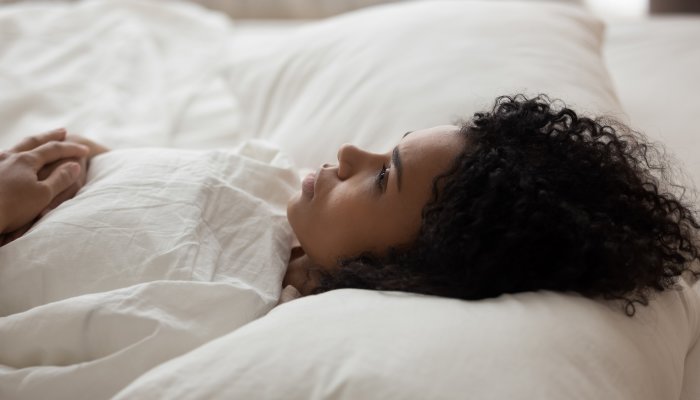
And “skin disease” casts a rather wide net—any inflammatory condition is technically a skin disease, including eczema, psoriasis, and even acne.
According to board-certified holistic dermatologist Noreen Galaria, M.D., FAAD, it’s the itchy conditions (think eczema and psoriasis) that may impact sleep the most. “The itch is more prominent at night as your body cools down for sleep,” she tells mindbodygreen. “This means as people are trying to fall asleep, heat is escaping through our skin to cool us down and make us ready for bed.” And heat is a common trigger for inflammatory skin conditions, which can increase itchiness.
“This, in turn, increases scratching right when patients are trying to wind down and relax, which creates a vicious cycle of trouble falling asleep,” she adds. After all, feeling anxious about falling asleep often keeps you up even later.
“Inflammatory conditions, like eczema and psoriasis, are the ones that affect sleep the most because of the way they affect your cortisol levels,” Galaria shares. And high cortisol levels can cause you to toss and turn all night and feel tired again the next day. “It is truly a cycle,” she notes.








